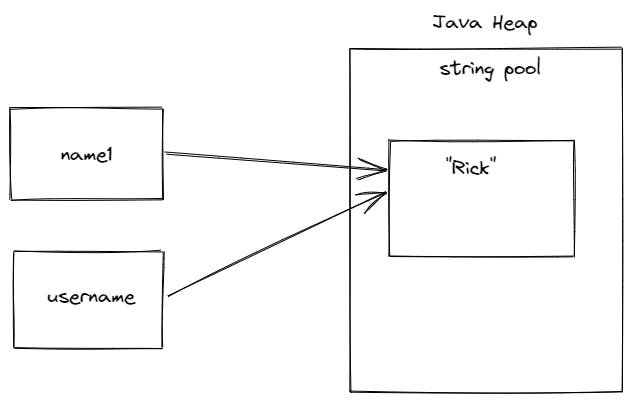Why Are Strings Immutable in Java? Essential Knowledge for Developers
Why Are Strings Immutable in Java? Essential Knowledge for Developers
Blog Article
Unalterable Strings: A Secret Element in Ensuring Data Uniformity and Dependability
In the realm of data administration, the relevance of unalterable strings can not be overemphasized. The concept of unalterable strings goes beyond mere formality; it is a linchpin in the complicated internet of information governance.
The Idea of Immutable Strings
Unalterable strings, a basic concept in programs, describe strings that can not be changed once they are created. Basically, when a string worth is appointed, any kind of operation that appears to change the string really develops a new string. This immutability ensures data consistency and reliability in applications, as it stops unexpected modifications to the original information.
Benefits in Data Consistency

Information consistency is important in various facets of software development, including database administration, multi-threaded settings, and dispersed systems (Why are strings immutable in Java?). Immutable strings add significantly to achieving this consistency by preventing information corruption as a result of simultaneous access. In circumstances where several procedures or threads interact with the very same information all at once, immutable strings serve as a guard against race conditions and synchronization problems
Furthermore, the immutability of strings simplifies debugging and screening procedures. With immutable strings, developers can rely on that when a string is established, it will remain the same, making it much easier to map the resource of mistakes and ensuring that test situations create consistent outcomes. This reliability in information dealing with eventually results in a lot more robust and secure applications.

Applying Unalterable Strings
Guaranteeing the immutability of strings calls for a thoughtful technique to their application in software growth. One crucial strategy is to make string courses in such a way that avoids alterations once a string item is produced. By making strings unalterable, designers can boost information uniformity and integrity in their applications.
To apply unalterable strings successfully, designers should favor developing brand-new string objects instead of changing existing ones. This technique ensures that when a string is designated a worth, it can not be changed. Furthermore, any procedure that shows up to change the string ought to develop a new string with the desired adjustments rather than modifying the original.
Moreover, utilizing unalterable strings can streamline concurrency administration in multi-threaded settings. Since unalterable strings can not be altered after production, they can be securely shared amongst multiple strings without the threat of information corruption.
Role in Reliability Assurance
In software program growth, the application of immutable strings plays a crucial function in guaranteeing the integrity of data procedures. Immutable strings, once developed, can not be changed, making sure that the information they stand for remains constant throughout the application's implementation. This immutability residential property gives a degree of assurance that the data being refined will certainly not be unintentionally changed, resulting in unanticipated end results or errors in the system.
By including unalterable strings into software application design, developers can boost the dependability of their applications by decreasing the threats dig this related to mutable information - Why are strings immutable in Java?. Immutable strings assist in stopping information corruption or unintentional alterations, which can be especially important when managing delicate info or when internet data stability is paramount
Furthermore, making use of unalterable strings streamlines simultaneous handling, as several threads can safely access and share string information without the threat of one thread altering the material while another reads it. This aspect contributes significantly to the total integrity of the software application system, guaranteeing predictable and regular behavior in information taking care of procedures.
Applications and System Integration
The smooth integration of unalterable strings right into various applications and systems is critical for ensuring robust information uniformity and reliability across diverse technological environments - Why are strings immutable in Java?. Immutable strings play an essential role in boosting the integrity of data exchanges and communications within facility software application environments. By including unalterable strings into applications, developers can minimize the risks related to data meddling, unapproved modifications, and inadvertent modifications, thus strengthening the general security stance of the system
In the context of system combination, unalterable strings serve as a foundational aspect for developing protected interaction channels and promoting seamless information transfers between various components. Their immutable nature makes certain that information transferred in between systems remains verifiable and unmodified, reducing the likelihood of incongruities or errors that could endanger the integrity of the entire system. In addition, immutable strings can boost interoperability in between disparate systems by offering a standard style for information depiction, enabling more effective information handling and exchange methods throughout interconnected systems. By embracing immutable strings in applications and system assimilation processes, companies can strengthen their data facilities and maintain the reliability and consistency of their details assets.
Final Thought
To conclude, unalterable strings play a crucial duty in keeping data consistency and integrity in various applications and system integrations. By making certain that strings can not be changed when directory developed, the stability of information is maintained, minimizing the threat of incongruities and errors. Executing unalterable strings can dramatically boost the integrity of systems, inevitably bring about even more precise and reputable data processing.

Report this page